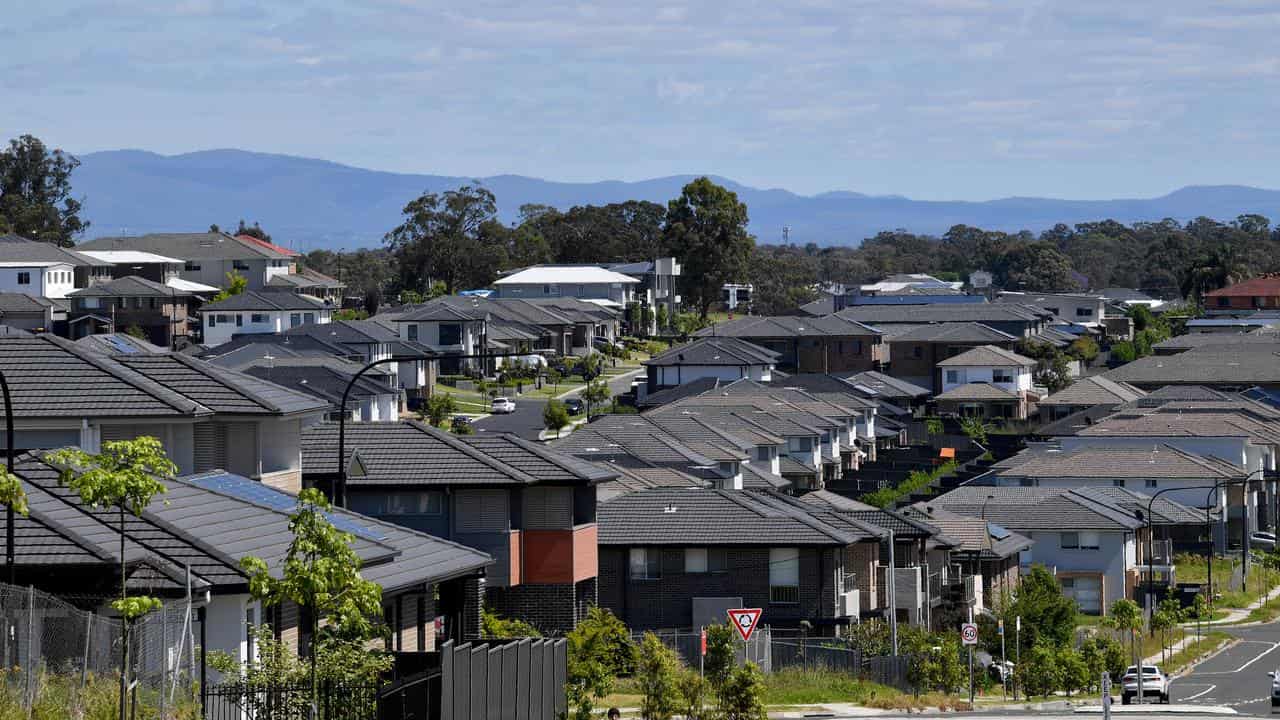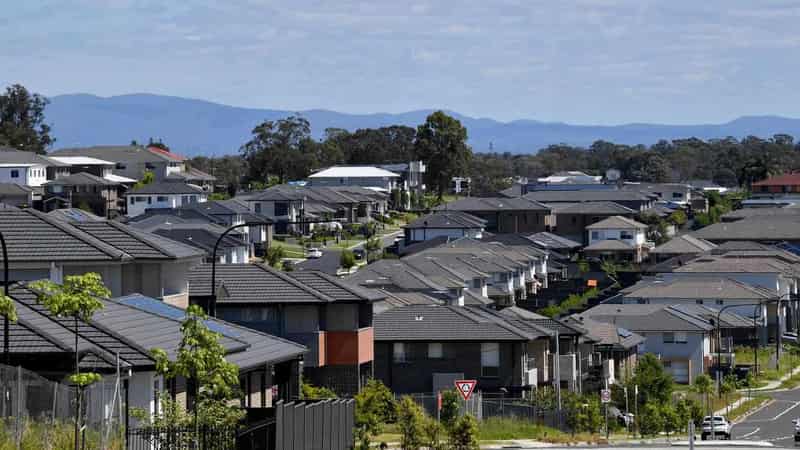
Councils under-delivering on NSW home-building goals will be named and shamed, and could be hit with sanctions if they fail to deliver on higher targets rolled out in a bid to combat the housing crisis.
Developer groups have welcomed increased targets for most councils under a plan that rewards local authorities with extra infrastructure funding when they deliver more dwellings.
But they have also called for more meaningful penalties for councils that fall short as persistently low housing approvals threaten the state's nationally agreed target of building 377,000 new homes over five years.
Council performance will be tracked in a published league table as the state government attempts to boost in-fill development of higher-density housing over further suburban sprawl.
"That will give a very transparent approach for the public to have a look at where (the councils) are," NSW Planning Minister Paul Scully said on Thursday.
"We've also been clear that the NSW government is willing to step in and make changes," he said.
Mr Scully added he was optimistic that councils recognised the housing challenges in their areas and wanted to be part of the solution.
"But of course, the act does provide for further sanction if there is continued poor performance when it comes to development applications," he said.
Fresh Australian Bureau of Statistics data released on Thursday showed dwelling approvals continued to slide in April, dropping 0.3 per cent nationally compared to the previous month.
Total approvals were down 4.5 per cent in NSW, while figures for the year to the end of April showed fewer than 45,000 homes approved in the state - well below the 75,000 needed each year to meet the nationally agreed goal.
Urban Taskforce acting chief Stephen Fenn said approvals for apartment buildings, which will do the heavy lifting of increasing housing supply, had flatlined in NSW.
"The performance of local councils in terms of approvals needs to be closely monitored and the housing targets strictly enforced," he said.
"Un-enforced targets will simply become theoretical exercises that will not help turn around the parlous state of housing in NSW."
Demand would continue to dwarf supply if governments failed to clear approval delays and reduce material-cost inflation and skills shortages, Master Builders Australia said.
Opposition Leader Mark Speakman said the government had increased fees, making new builds harder to fund.
"You can announce all the targets and up-zonings in the world, but they won’t produce more housing unless it’s financially feasible to build," he said.
Ku-ring-gai mayor Sam Ngai, whose council has taken the state government to court over one of its signature policies to increase housing density, questioned whether enough construction workers would be available to hit its target of 7600 new homes by 2029.
"We believe each council should receive a 20-year target to aspire to, and that councils are best placed to determine where the housing densities should go," he said.
Inner West Council mayor Darcy Byrne said the target of 7800 new homes for his region was achievable without state intervention.
“We’ve been clear that the inner west wants to take responsibility for addressing the housing supply crisis and we are capable of doing this at the local level,” he said.









